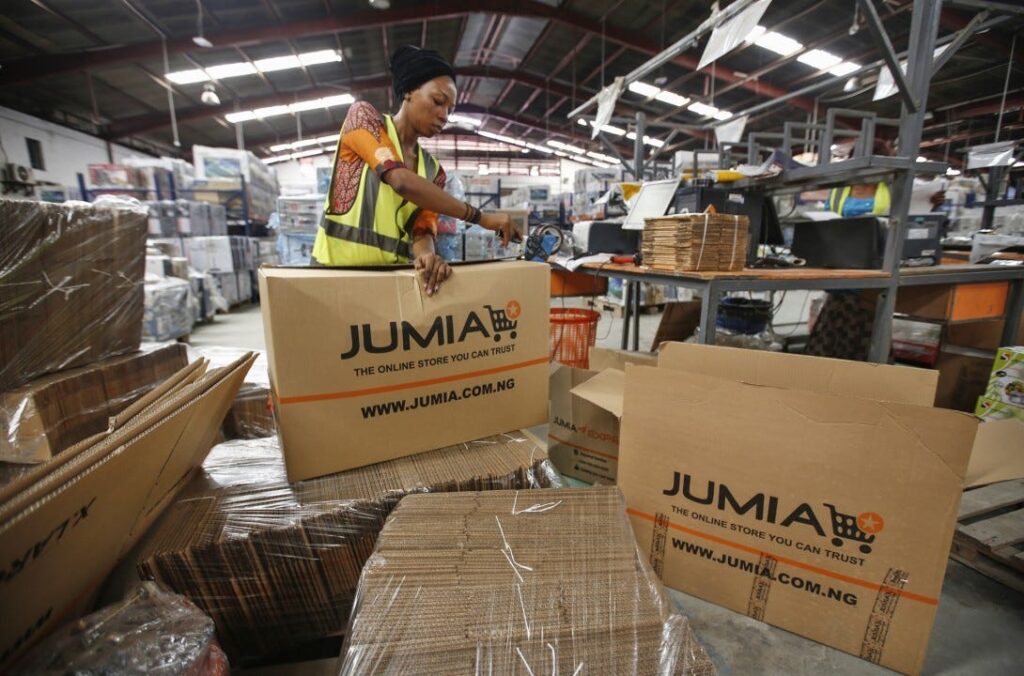When Jumia launched in Lagos in 2012, it was hailed as Africa’s answer to Amazon. Venture capitalists poured money into it, hoping it would crack the continent’s untapped e-commerce market. Within a few years, the company expanded across more than 10 African countries, and its 2019 New York Stock Exchange listing made global headlines. At its peak in 2021, Jumia’s market valuation soared above US$5 billion.
But the story since then has been more sobering. Jumia has consistently struggled with challenges that are uniquely African: poor logistics infrastructure, low consumer purchasing power, unstable currencies, and patchy internet penetration. Delivery networks are unreliable in many cities; millions of people still prefer open markets and cash payments; and fluctuating naira and Egyptian pound rates have made financial reporting messy.
Losses piled up. By 2022, Jumia posted a pre-tax loss of US$206 million. Analysts began to ask hard questions: was the company simply chasing an impossible dream? Or could it reinvent itself as a leaner, more realistic business?

Table of Contents
A New Chapter of Discipline
The company’s fortunes began to shift under Francis Dufay, who became CEO in late 2022. Dufay moved quickly to cut costs, drop unprofitable operations, and focus on core markets. Jumia pulled out of countries where it had little hope of breaking even and tightened marketing budgets. This frugal strategy started to pay off: by 2024, losses had reduced by more than half.
For example, Jumia’s pre-tax loss in Q1 2025 fell to just US$16.5 million — the lowest in two years. Orders grew by 12% year-on-year, reaching 5.1 million, with more than half now coming from secondary towns and rural communities rather than big cities like Lagos or Cairo. This shift shows where the growth potential lies: in smaller markets where competition is weaker and customers are hungry for convenience.
The company has also invested in its payments arm, JumiaPay. The service has become vital for customers who want safer digital transactions, especially in places where trust in online shopping is still shaky. Alongside payments, Jumia has pushed into advertising and logistics-as-a-service, building new revenue streams beyond the core online marketplace.
Financial results now show cautious stability. In Q2 2025, revenue rose 25% to US$45.6 million, while gross merchandise value (GMV) grew by 6% compared to the previous year. Jumia expects to cut full-year losses to around US$50 million in 2025, down from more than US$200 million just three years earlier.

Competitors, Currency, and the Cash Question
Yet Jumia’s battle is far from won. Its fiercest rivals are no longer other African start-ups but deep-pocketed Chinese e-commerce giants like Temu and Shein. These platforms are capturing young, price-sensitive consumers with products that are up to 50% cheaper than what Jumia offers. Even though delivery from China can take weeks, many Nigerians are willing to wait to save money.
Currency instability remains another thorn in the company’s side. The devaluation of the naira in 2023 and 2024 slashed the dollar value of its Nigerian revenues. Similar problems have hit Egypt, its second-largest market. This means that even when Jumia grows in local currency terms, its results in US dollars — the language of global investors — often look flat or negative.
Cash reserves are shrinking, too. By Q1 2025, Jumia’s liquidity dropped to about US$110 million, after another quarter of cash burn. The company insists it will not need to raise more money to reach profitability by 2027. But critics say one or two bad quarters — perhaps triggered by currency shocks or rising competition — could leave Jumia vulnerable.
Despite these risks, investor interest has recently returned. In mid-2025, Jumia’s stock price rallied over 120% after fresh reports of shrinking losses and backing from new institutional investors like Axian, which has taken a seat on the company’s board. This suggests that the market still believes in Jumia’s long-term story, provided it continues on its path of strict financial discipline.

What the Future Holds
So, is there a future for Jumia as Africa’s Amazon? The answer is yes — but only if the company adapts to African realities rather than chasing a Silicon Valley playbook.
E-commerce penetration across Africa is still less than 5%. With internet access expanding and mobile money adoption surging, the long-term opportunity is vast. Rural and secondary cities are Jumia’s most promising frontier, where demand for affordable goods and reliable delivery is growing. Jumia’s pivot to these regions is its smartest bet yet.
Building ecosystems is another advantage. JumiaPay is already a strong digital wallet, and its logistics network could evolve into a backbone for other businesses, not just its own platform. If Jumia can integrate advertising, payments, logistics, and third-party services into a robust ecosystem, it could secure a competitive moat against foreign entrants.
Still, the challenges are stark. Competing on price with Temu or Shein may be impossible. Currency risks will not vanish overnight. And maintaining trust among African consumers, many of whom still prefer cash on delivery, will require patience and persistence.
The company’s target of breaking even by 2027 looks ambitious, but not impossible. What matters now is execution: staying lean, focusing on profitable markets, and resisting the temptation to chase unsustainable growth. Investors have heard big promises from Jumia before. This time, the company must prove it can deliver.
For ordinary Nigerians, Jumia’s survival also has broader significance. Beyond shopping convenience, it represents jobs, digital inclusion, and the possibility of African-built tech platforms holding their own against global giants. If Jumia succeeds, it could inspire the next wave of African start-ups. If it fails, the continent may become even more dependent on foreign players who have little stake in local development.
Join Our Social Media Channels:
WhatsApp: NaijaEyes
Facebook: NaijaEyes
Twitter: NaijaEyes
Instagram: NaijaEyes
TikTok: NaijaEyes















![Trailblazing Chef Hilda Baci Set to Cook 250 Bags of Rice in Daring Attempt to Break Record for World’s Biggest Jollof Pot [VIDEO] Hilda Baci](https://naijaeyesblog.com/wp-content/uploads/2025/09/hilda-1-180x135.avif)
























